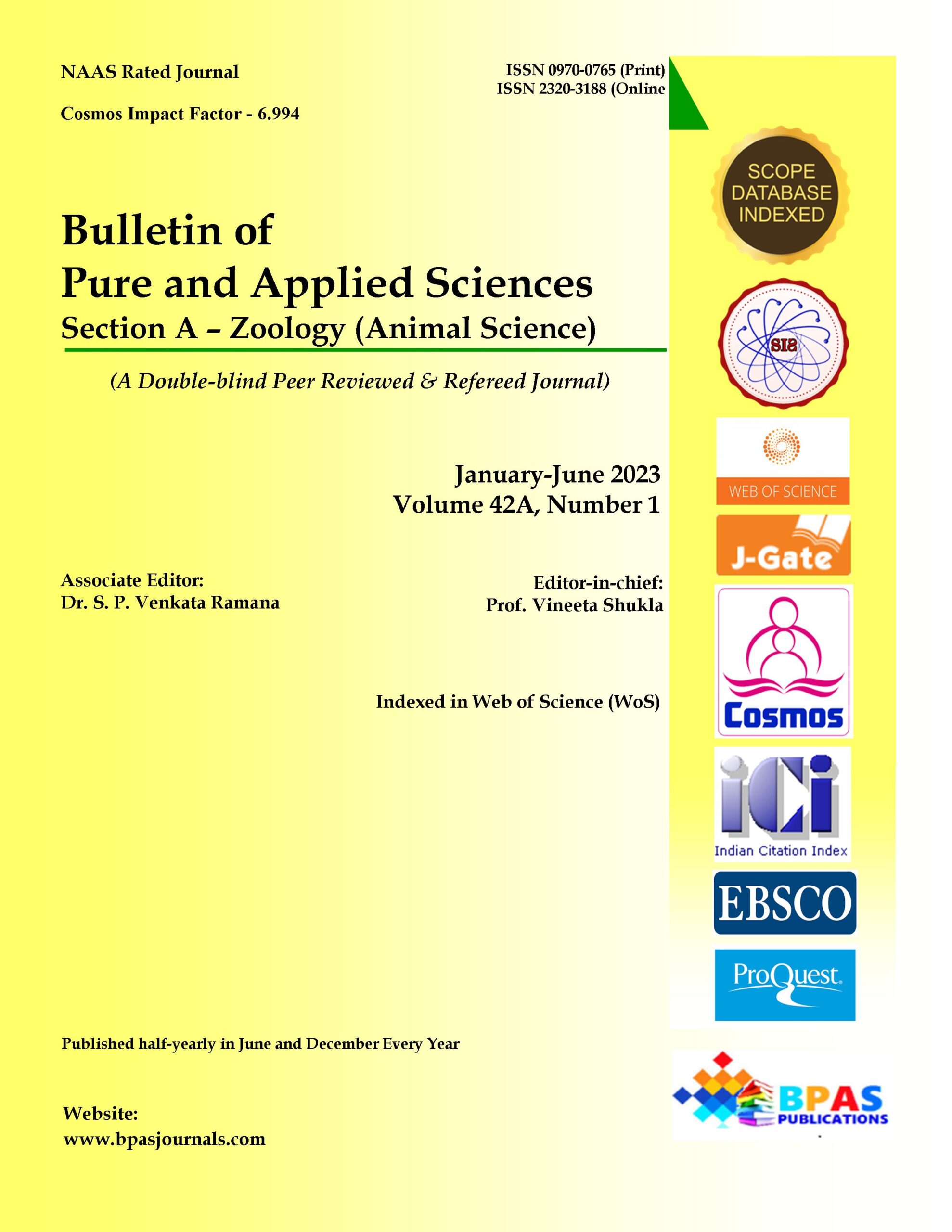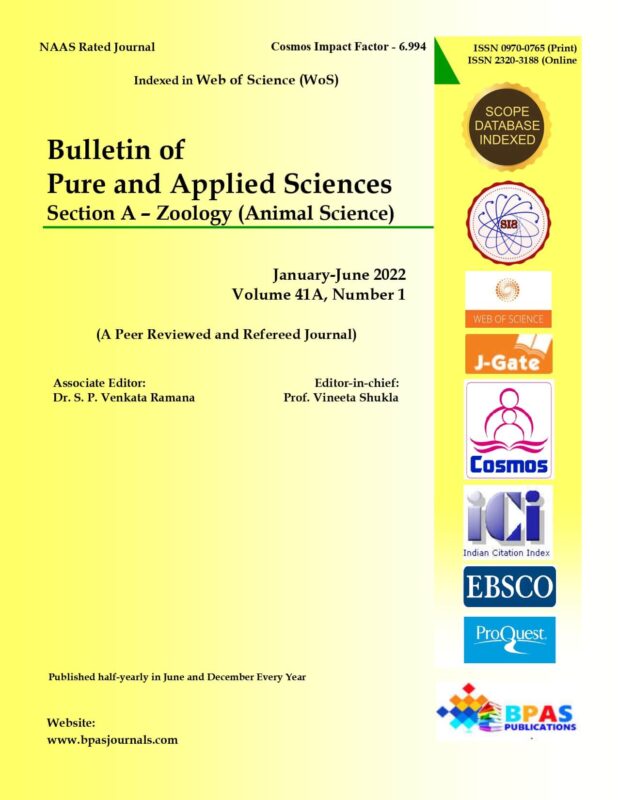Effect of Diclofenac Sodium in Developing Chick Embryo, Gallus Gallus domesticus (Linn, 1758)
9.38$
Effect of Diclofenac Sodium in Developing Chick Embryo, Gallus Gallus domesticus (Linn, 1758)
Samir Terdalkar
Bulletin of Pure and Applied Sciences
Zoology (Animal Science), Vol.42A, No.1,
January-June 2023: P.134-139
DOI: 10.48165/bpas.2023.42A.1.11
Original Research Article
Description
Effect of Diclofenac Sodium in Developing Chick Embryo, Gallus Gallus domesticus (Linn, 1758)
Samir Terdalkar
| Author’s Affiliation:
Assistant Professor, Department of Zoology, Fergusson College (Autonomous), Pune, Maharashtra 411004, India
|
| *Corresponding author:
Samir Terdalkar, Assistant Professor, Department of Zoology, Fergusson College (Autonomous), Pune, Maharashtra 411004, India E-mail: sterdalkar@fergusson.edu
|
| Article Info:
Received on 23.02.2023 Revised on 03.05.2023 Approved on 09.05.2023 Accepted on 20.05.2023 Published on 16.06.2023 |


